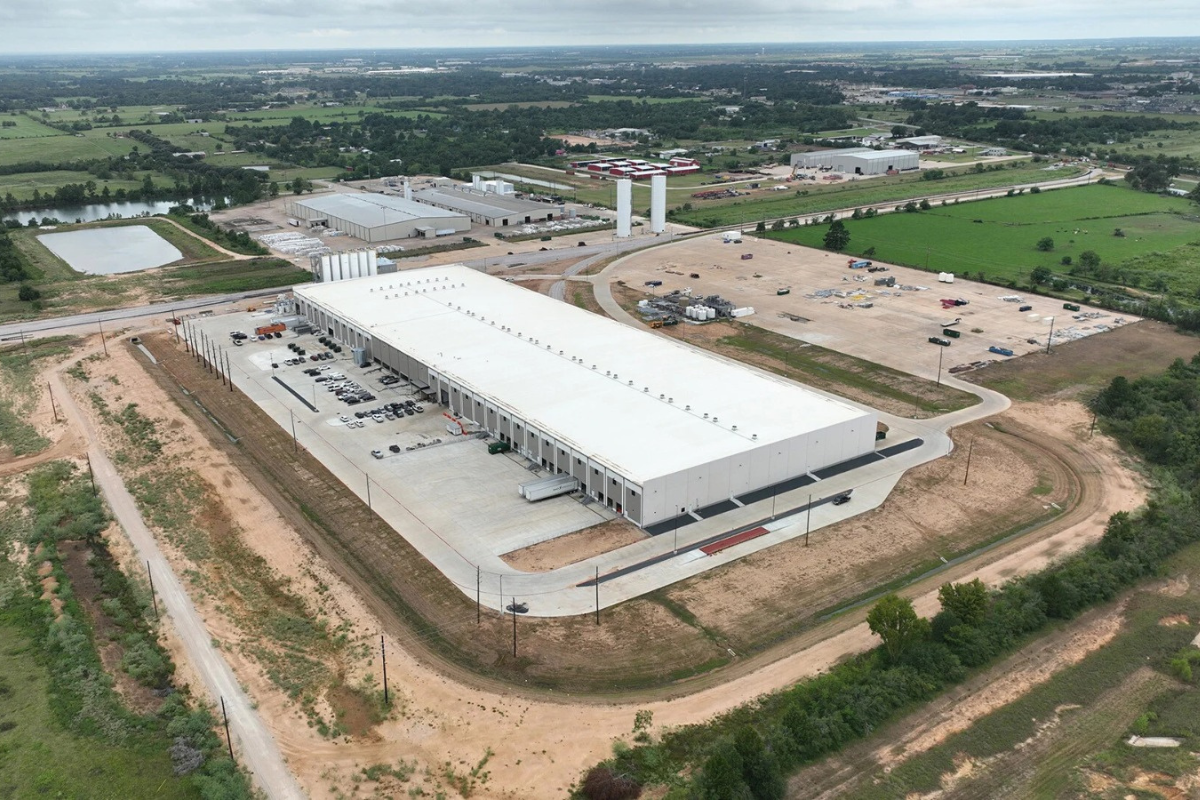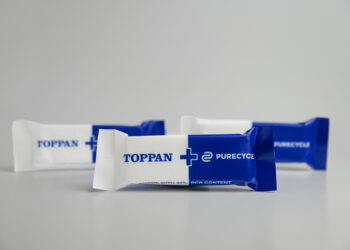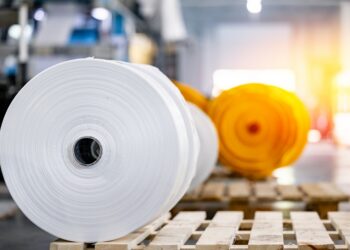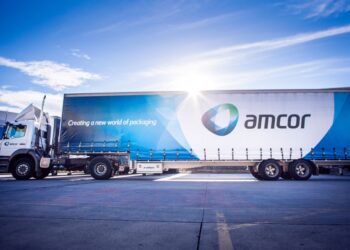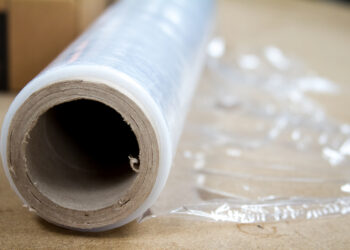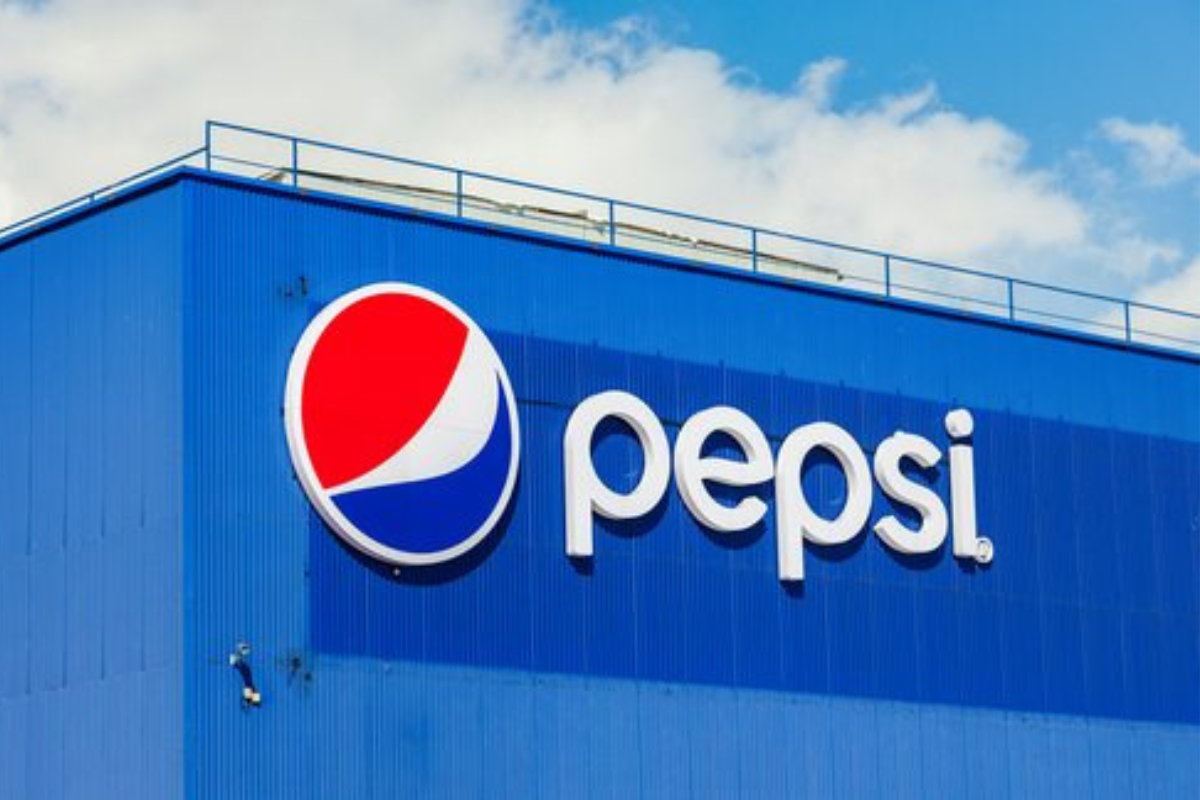The nation’s largest waste services provider, WM, is unveiling its new $150 million plastic film recycling facility in Waller, Texas.
The Natura PCR campus northwest of Houston has five buildings spread over 150 acres, including WM’s largest recycling facility by square footage, at 270,000 square feet, Brent Bell, vice president of recycling at WM, told Plastics Recycling Update via email. The original plant was about 90,000 square feet.
The new plant started up in late 2024 and will continue to ramp up throughout 2025, with an initial capacity of 7.5 million pounds of resin per month, which could be increased over time at the current Waller location, Bell said.
During a February 2023 investor call, WM CFO Devina Rankin said the company’s planned $125 million in capital expenditures would include expanding Natura PCR capabilities in Waller, as well as building a film recycling plant in the Midwest. The previous autumn, local media outlets had reported that the company would build a film recycling plant in Evansville, Indiana. In 2022, WM acquired a controlling interest in Avangard Innovative, parent company of Natura PCR, the name WM later ascribed to the whole entity.
It was not immediately clear whether the company still plans to build the Indiana plant. “WM is currently focused on optimizing the facility in Waller to meet our customers’ needs,” Bell said when asked about the status of the Indiana location, announced by Avangard and originally slated to open in 2024. The Evansville Regional Economic Partnership didn’t respond to a request for comment.
Canada’s Nova Chemicals recently opened its new Indiana film recycling facility in Connersville, about 250 miles southwest of Evansville.
Feedstock supply subject to macro whims
In recent years, availability of LDPE and LLDPE has fluctuated due to macroeconomic conditions and suppliers’ ability to generate recycling-grade film, Bell said. In addition, the plastic film recycling space has experienced upheaval that affects demand for feedstock bales, including plant closures from PreZero and Myplas as well as new or restarting capacity from Nova, Trex and GDB.
WM collects plastic film from existing customers where it also manages cardboard, such as large retailers and distribution centers. “One of the reasons WM chose to invest in Natura PCR is that our customers sought better solutions for managing plastic film,” Bell said.
To help improve the quality of its feedstock bales, Natura grades and reviews every bale it receives, Bell said. Suppliers then receive a report on the findings, providing an opportunity to work with the supplier to remove contaminants.
“WM works with our suppliers to provide solutions for separating film with the intention of more consistently sourcing material and increasing the availability of film that is capable of being recycled,” Bell said. “For example, we aim to help suppliers understand how to handle FDA-compliant material, including not mixing it with other materials, so that it qualifies as a higher-grade.”
And although WM has not seen a significant impact on feedstock supply amid a sluggish macroeconomic environment, consumer spending can affect film availability. “When consumer spending decreases, there is typically less packaging film consumption and therefore the volume of film entering the recycling stream decreases, which can create volatility in supply,” Bell said.
Although in earlier years some customers would balk at the price premium for recycled resin over virgin material, “now, many understand that there is generally a higher cost to using recycled materials and that using recycled materials can be better for the environment. We have also heard of challenges with consistent quality and reliability, as some customers have seen fluctuations in supply as new investments in plastic film in the U.S. go through a start-up phase,” Bell said.
Looking ahead, Bell cited recent legislation mandating minimum recycled content, as well as consumer brand plastics commitments, for the increasing interest in film recycling. He noted that some customers have been testing FDA-compliant pellets, especially clear LLDPE grades for flexible packaging, and that the company has seen growing demand for resins customized for specific applications, requiring collaboration on resin performance characteristics including clarity, melt flow and tensile strength.
Bell said the new facility includes enhanced testing capabilities, and technology and operational improvements make the plant significantly more efficient than the original.












